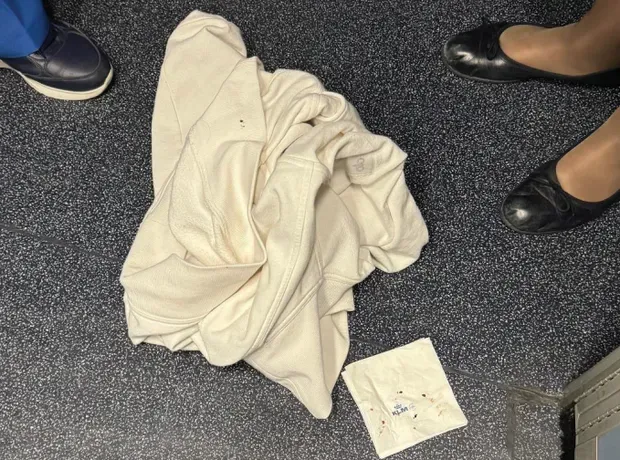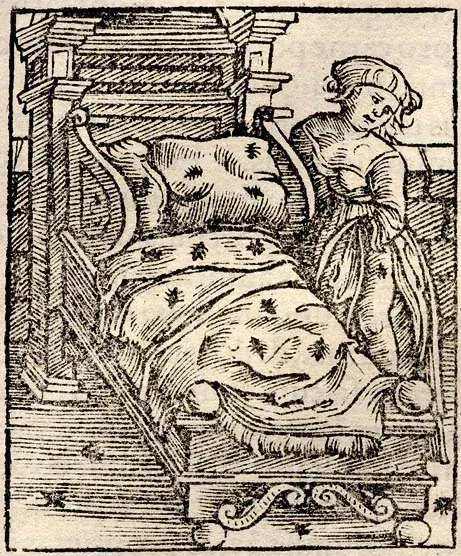Bed Bug Lifecycle
Matt Unrein • September 17, 2024
The Lifecycle of Bed Bugs
Bed bugs go through various stages in their lifecycle which affects their feeding habitats and where they will hide. Bed bugs are blood feeders similar to mosquitos and ticks but how they travel is very different. Mosquitos travel by flight and then find standing water to repopulate. Ticks feed by taking the blood from living animals and humans to gather energy for breeding. Bed bugs are similar to ticks in that they need blood to repopulate but they travel around.
Feeding Cycle
Bed bugs have a cryptic lifestyle. This means that these pests spend most of their time hiding during daylight hours with their friends in tight and dark places. During the night, they become very active and start to look for hosts to feed on. Bed bugs are most active from 24:00 to 5:00 and this is when these pests will feed on their human host. Bed bugs are attracted by CO2 which is produced by humans naturally and bed bugs can also find their host by heat. Once the bed bugs find a host to feed on, they will only need 5-10 minutes to fill up. So the window to find a bed bug directly on your person is very small. Bed bugs only need to feed every 3-7 days on the host's blood. If you are looking for methods to keep bed bugs away from you when you sleep we have most methods that might help.
Mating and Growth Cycle
After feeding on the host's blood, bed bugs become very active in mating. On average female bed bugs will produce between 1-7 eggs per day for about 10 days for each single blood meal they got their host. A single female can produce about 113 eggs in her whole lifetime. Under the right conditions, the mortality rate for these eggs can be as low as 97%. It will take about six to nine days for the eggs to start hatching.
After the eggs hatch the nymphs will develop through five stages of molting until they reach adulthood. This process will take about 37 days to complete and under favorable conditions, about 80% of the nymphs will become adults. If you want to kill the bed bugs before they become adults then the egg and nymph stage will be when they are the most vulnerable. Please visit our FAQ page
for the signs of bed bugs and please give us a call at 816-237-5340 for a free inspection.

Though their name is misleading, bed bugs don’t just stick to bedding. Dark corners, warm fabrics, and just about any human or animal-occupied space can be a bed bug paradise. Furthermore, in a recent article from CBS News, we learn that these resilient pests don’t even stick to the ground—they were found boarded business class on a KLM Royal Dutch Airlines flight, purchased through Delta Airlines SkyMiles program. Having feelings of “bugs crawling on her and that she was being bitten”, Virginian Lisandra Garcia alerted a flight attendant, in fear that her family of four was being feasted upon. They were travelling from Atlanta to Amsterdam and were only met with demands to “keep their voices down” and to “not tell anyone about the infestation,” or else they would miss their connecting flight to Serbia. But after they found bugs on their clothing and even bugs on an airline napkin—on top of being threatened—a $200,000 lawsuit was filed against Delta and KLM. The flight attendants allegedly gave the family plastic bags to carry their personal belongings. “Afterwards, the family claims they learned that the flight attendants had filed a grievance with KLM because of the infestation.” The ignorance of the issue at such a professional level shows just how invasive and detrimental a bed bug infestation can be. After landing the next day, the lawsuit claims that the four were left with harsh welts, lesions, and rashes, which are shown in these supporting photos from the article. "To this day, Mrs. Garcia has scars on her lower back where she was bitten." In response to the lawsuit, a spokesperson from Delta stated that the allegations relate to flights not operated by Delta Air Lines. KLM has been contacted but has not yet made a statement. Had the airline acted appropriately and taken the necessary precautions of treating the plane for pests, a lawsuit would have been avoided, a family would have flown injury and turmoil-free, and the company name would have skipped the harsh tainting. After travelling, it is always smart to inspect your body, luggage, car, and pets for signs of bed bugs, and when you find something unwanted, call the pest control pros at SOS. They specialize in safe, non-toxic, and effective thermal heat treatment, able to treat your entire house—including inside your walls—in a matter of a few hours. With a 90-day pest-free guarantee, SOS Pest Control is your saving grace when bed bugs choose you for their in-flight snack. If you are a commercial business owner, SOS has also treated and defended countless businesses from the same fate as Delta and KLM. Bed bugs can and will invade your commercial space, whether it be a warehouse, a storage unit, a doctor’s office, or a hair salon. But SOS arrives promptly and discreetly in unmarked vehicles so you can save your company’s name. Serving any area within an hour of their headquarters in Kansas City, Missouri, call SOS Pest Control at 816-237-5342 for a free inspection and peace of mind. Don’t let pests invade your space and tank your business!

Humans have fought— and lost—many battles against pesky insects and rodents throughout history. From plague-ridden rats in 14th-century Europe to the modern comorbid mosquito, millions of people have fallen to opponents a fraction of their size. But the earliest war has lasted over 245,000 years and is still fought today: Humans versus bed bugs. A team of researchers at Virginia Tech studied the lineage of bed bugs and found that patterns in their activity coincided with the rise and fall of the human population over time. Though these findings admit the defeat of bed bug reign by humans, they can be used to predict future invasions as urban living develops, and to investigate the phenomenon of insecticide resistance in the determined bed bug species. Though bed bugs first preferred cave-dwelling bat blood, a group of them jumped over to the Neanderthals in those same caves, and their palates have remained un-cleansed ever since. In fact, humans became the bed bug’s exclusive source of sustenance, a preference shared by only one other insect species—head lice. Just like you won’t find a family of lice at the local park, you won’t find bed bugs in your garden—only in your bed and other suitable dark spots in your home. Bed bugs have hitchhiked and set up camp amongst humans for centuries, just waiting for the perfect time to indulge in their human midnight snacks. But there is good news. Bed bugs will not be the cause of any new plagues, as they cannot make humans sick. Though their bites, as well as their resilience, can be irritating, their harm is liminal, and there are easy methods for getting those lazy bones (or exoskeletons?) out of your bed. However, bed bugs are resistant to many residential chemicals, and consulting professionals is your best bet. First, call SOS Pest Control for a FREE inspection. If they do bombard on a bed bug sleepover, their safe and effective heat treatment heats your home’s walls to rid of bed bugs from the inside out. This safe, effective, and damage-free process takes little time, and SOS’ unmarked vehicles ensure your neighborhood won’t be all up in your business (as for businesses, we will make sure the neighborhood is back up in you soon). Call (816) 471-5733 today or visit online at soskc.com Original article: https://news.vt.edu/articles/2025/05/bed-bug-whole-genome-human-lineage-warren-bo
